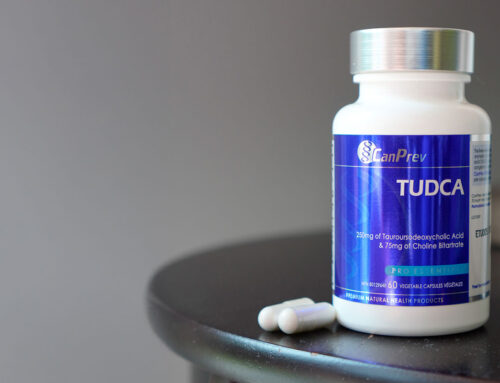The number of dietary supplements and food items, like bone broth, containing collagen are on the rise – and for good reason.
Increasing your dietary intake of collagen has been linked to positive effects on health, including improved skin appearance, reduced joint pain, and better digestion and gut health. It may also help strengthen nails, hair, and bones.
What Is Collagen?
Collagen is a type of protein found in the bones and connective tissue of humans and animals. It provides support and structure to the body, particularly the skin, tendons, ligaments, muscles, and skeletal system.
Collagen is made primarily from the amino acids Glycine, Proline, and Hydroxyproline. The body produces its own collagen from free amino acids, but this process slows as we age.
It’s thought that this natural decrease in collagen production plays a role in the development of many common age-related concerns, like wrinkling of the skin, and joint pain and bone loss associated with osteoarthritis and osteoporosis, respectively.
Health Benefits of Collagen
Supplementing with collagen is not essential, but it does offer some pretty amazing health benefits that can help counteract these undesirable symptoms associated with age-related collagen decline.
Here are some of the most notable benefits of adding collagen into your regular dietary – and natural beauty regimen.
MORE SUPPLE SKIN & ANTI-AGING
Skin signs of aging include wrinkles, loss of firmness, dryness, and sagging. These signs may occur due to less collagen being made as we age and breakdown of existing collagen. Sun exposure also plays a role in aging the skin.
Research has found collagen supplementation results in significant improvement in the texture of skin, including fewer wrinkles, increased elasticity, and increased hydration. These findings suggest collagen supplements can be beneficial in slowing or even reversing signs of aging skin.
Most of the supplements used in these studies also contained other ingredients thought to benefit skin health and prevent the breakdown of existing collagen, such as hyaluronic acid, vitamins, and antioxidants.
Choosing a collagen supplement that combines several nutrients for skin health may be important.
It should be noted collagen in topical form is not effective at treating skin signs of aging. Collagen molecules are too large to be absorbed into the deep layers of skin.
Other lifestyle factors like diet quality, smoking, and stress can also play a role in skin aging and should be addressed in addition to collagen supplementation for best results.
EASING JOINT PAIN & STIFFNESS
Another symptom that goes along with aging is joint deterioration that results in pain, stiffness, inflammation, and limited range of movement.
Several scientific studies concluded that hydrolyzed collagen supplements resulted in increased collagen in surrounding joint tissues and a decrease in symptoms of joint degenerative disease, like osteoarthritis.
One study found taking collagen over 24 weeks helped reduce joint pain among athletes – an at-risk population for joint disease due to overuse.
People who experience improved joint health may also be more inclined to increase their physical activity levels, which further improves overall health.
Taking a collagen supplement specifically formulated for joint health, like CanPrev’s Joint Pro Concentrate, can help keep joints flexible and cushioned, easing pain, stiffness, and inflammation associated with arthritis.
GUT HEALTH BENEFITS TOO?
Some health practitioners believe collagen has additional anti-inflammatory properties that can help treat digestive disorders, like irritable bowel syndrome and leaky gut.
The thinking behind the mechanism is that collagen can help rebuild the lining of the intestine, which is usually damaged and inflamed in most digestive disorders.
Science is emerging to support the theory that amino acids, like those found in collagen, can prevent and treat inflammatory gastrointestinal disorders. However, additional research is needed to determine the impact of collagen supplements on gut health.
Some other benefits of collagen:
- Reduces hair loss
- Improves liver health
- Diminishes the look of cellulite
- Improves wound healing
Natural Food Sources of Collagen
Most people aren’t too familiar with collagen in the form of food. The best dietary sources of collagen are from inedible parts of animals, like bones and cartilage. The majority of Western diets aren’t rich in collagen since these animal parts tend to be discarded in food preparation and cooking.
Since animal food sources of collagen are less used and accepted by most people, supplementation is an easy and accessible option to boost your intake. The collagen found in most supplements is hydrolyzed, or separated, into amino acids making it more bioavailable.
Studies have found that collagen in food has less bioavailability, meaning its ability to be absorbed through the intestine and utilized in the body, compared to hydrolyzed collagen.
According to one study, hydrolyzed collagen is absorbed better than collagen from food – because it’s already broken down into amino acids that are ready to absorb.
Consuming hydrolyzed collagen also boosts your own collagen production by providing the “pieces” (amino acids) needed for its formation.
As a side note, studies show that collagen synthesis is stimulated by vitamin C, so it would be beneficial to take both collagen and Vitamin C together or increase your intake of vitamin C-rich foods.
Animal VS Marine Sources of Collagen
It must be noted that not all collagen is created equal! The two main types that you’ll find in supplemental form are animal (generally bovine/cow) and marine (fish) collagen.
| ANIMAL/BOVINE | MARINE/FISH |
| Made of skin, bones, muscles | Made from fish bones & scales |
| Rich in type 1 & type 3 collagen | Rich in type 1 collagen |
| Rich source of amino acids Proline & Glycine | Rich source of amino acids Glycine, Proline & Hydroxyproline |
| Excellent for maintaining bone, joint and gut health, reducing fatigue and repairing sun-damaged skin | Easier to digest due to smaller collagen peptides, so there is increased bioavailability and absorption |
Choosing one over the other is really up to you as both types have similar benefits.
Since it can be a little difficult to get a steady intake of collagen through dietary sources (who wants to constantly have a pot of bone broth on the go?), collagen supplements are a safe way to promote skin and joint health with little-known risk or side effects.
Hydrolyzed collagen supplements that are specially formulated with other complementary ingredients (like Vitamin C!) for skin and joint health are proven quite effective.







I asked and asked,with no answer. Can u take your collagen powder with other protiens
Hi there, thank you for your question. To increase absorption, it is best to take our collagen formulas with a lower protein meal or snack. Hope this helps!
I read in one of the magazines and the writer stated that he had very bad knee pain and was advised to get surgery. Some one told him to have collagen and he stated that his pain was reduced and he was able to walk for long distances. My question is which particular collagen product (pills not powder if possible) should be used to help with knee pain etc.
Hi there, thank you for your question. Collagen makes up approximately 70% of the body’s cartilage. The word collagen comes from the Greek word for glue “colla” because it helps to keep your cells “glued” together. Low collagen levels can loosen your cartilage and tendons, and may contribute to pain and higher likelihood of injuries as well. As we age our lifestyle and health impacts our joints and ultimately how we move. We may experience more cartilage wear and tear-related joint conditions. The knees (hip, feet and spinal joints too) are most commonly affected by cartilage tissue dysfunction.
We recommend that you take a look at our Collagen Joint & Cartilage formula. At this time, it is only available in powder – an effective dose is 5-10 grams (1-2 scoops per day).
CanPrev’s Collagen Joint & Cartilage contains specialized peptides that are highly effective for stimulating the activity of chondrocytes – the main cells that make up our cartilage matrix. Chondrocyte cells can be found in all cartilage connective tissue and directly increase joint collagen production. These peptides act as a continuous nutrient supply for more collagen production directly at the joints! Collagen Joint & Cartilage helps to reduce joint pain associated with osteoarthritis and is a source of the essential amino acid lysine, to help in collagen formation. Naturally, our cartilage tissue grows and repairs more slowly than other tissues. As long as some cartilage matrix remains, Collagen Joint & Cartilage peptides work to regenerate cartilage tissue by increasing collagen production and creating a healthier joint-cartilage matrix. Hope this helps!
How much water should I take with 1 scoop of Collagen Beauty?
Hi there, thank you for your question. You can add 1 scoop of our Collagen Beauty powder to 1 cup of water. Hope this helps!
Hello, hope I don’t have to wait a year to get the answer like the others lol…
What is the amount of protein, carbohydrates, and other vitamins/minerals in a scoop of your collagen? Thanks
Hi Dori, thank you for your patience! The amount varies depending on the collagen supplement. However, you can find specific information on the ingredients of each product. Hope this helps!
Can you take a collagen supplement with fibre (i.e. psyllium husk)?
thanks,
Mary.
Hi Mary, thanks for your question! Yes, the two can be taken together. As always, we recommend speaking with your trusted healthcare practitioner before beginning any new natural health products, to be sure that the nutrient and dosing is right for you. Hope this helps!